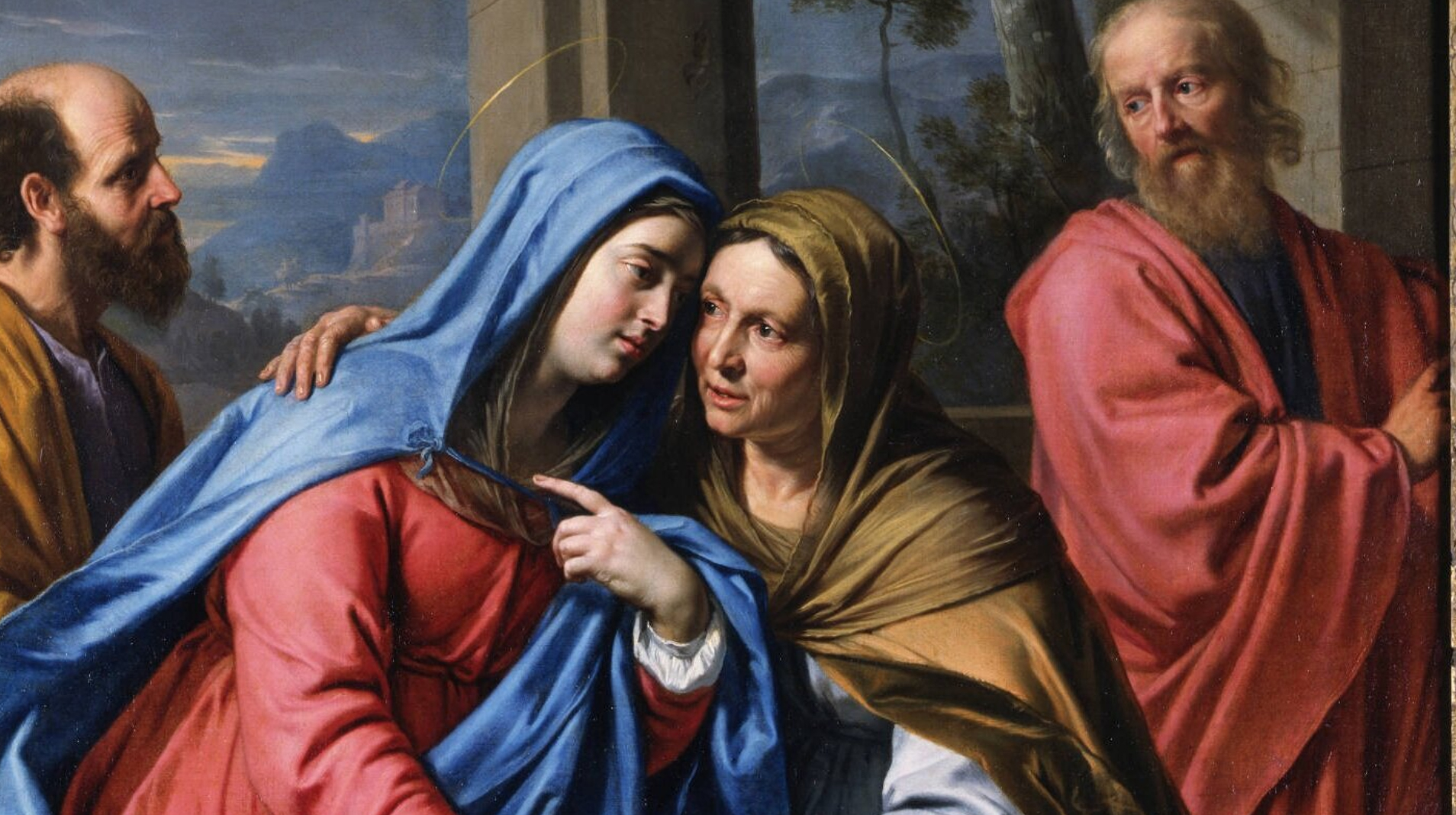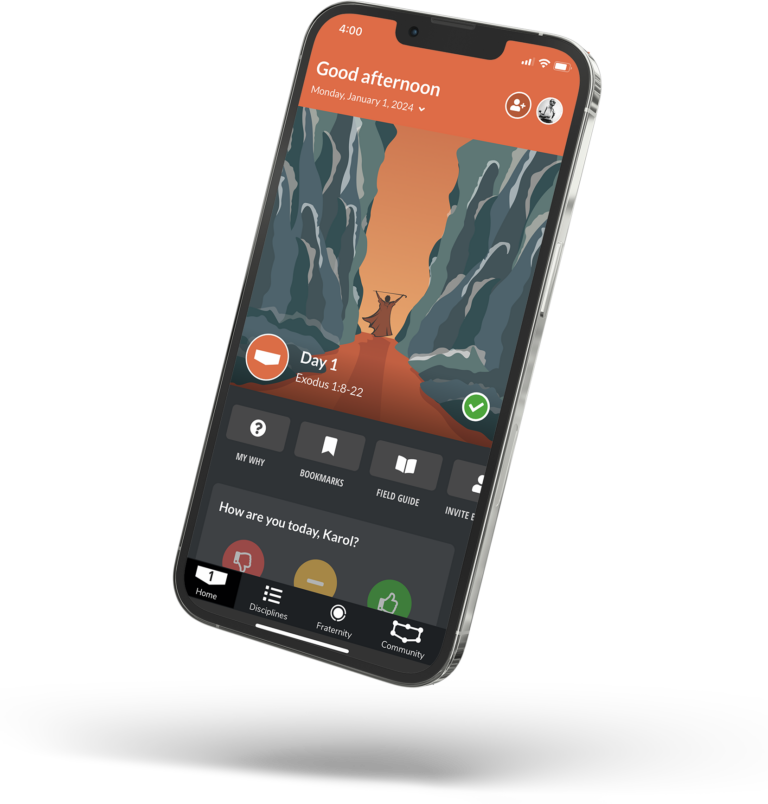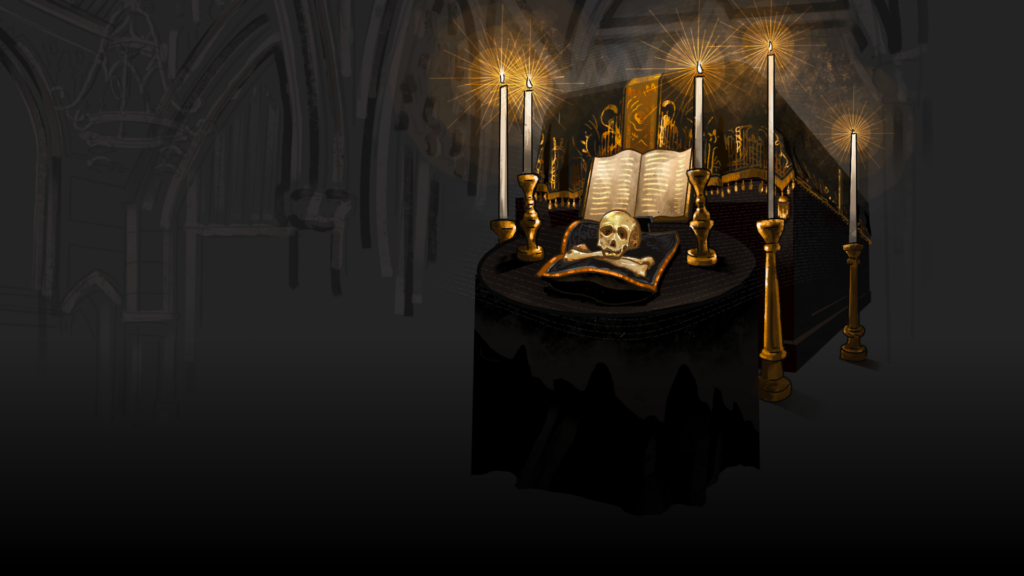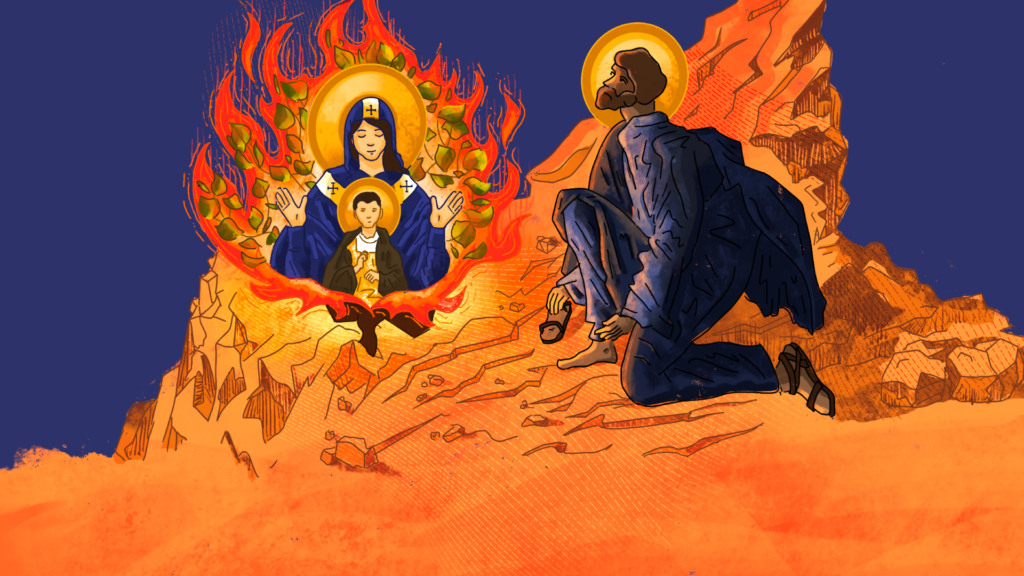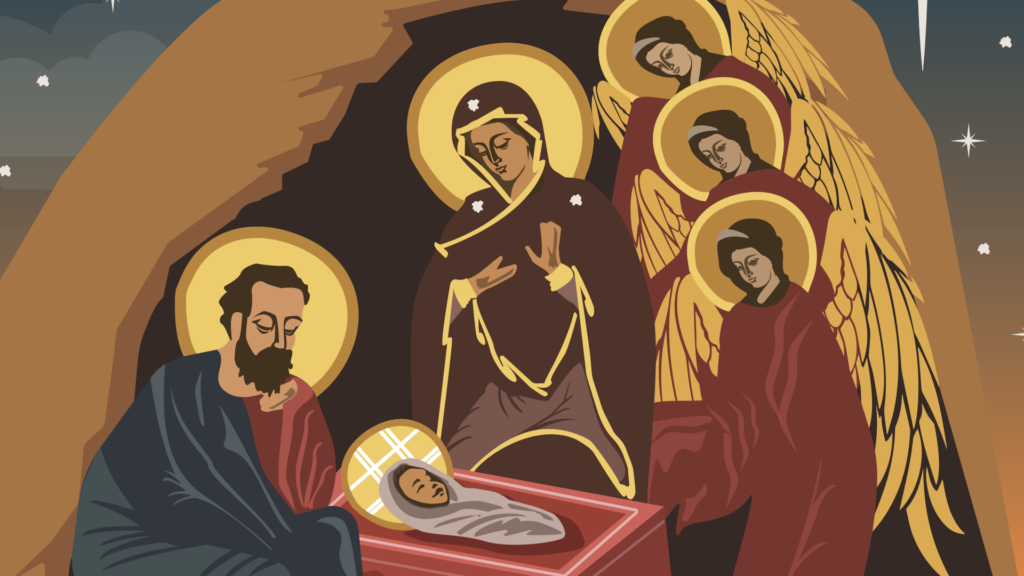The Visitation is on May 31st. At the Annunciation, Mary received the greatest of news: the Messiah, the Savior, had arrived. She received Jesus into her womb and became the restored Temple as the Spirit overshadowed her, the same shekinah cloud that withdrew from God’s Temple at the time of the Exile. Joseph received his own annunciation through the mediation of an angel in his dream, leading him to accept his role as guardian of the Father’s Incarnate Son.
What would be done with this message? The first thing was to bring the good news of salvation to Mary’s cousin Elizabeth, the mother of John the Baptist. Zechariah, John’s father, had experienced his own annunciation while performing his priestly duties in the Temple, though he responded with disbelief. The conception of John was not a miracle just for his parents, because it heralded the coming of the Messiah. His disbelief seemed to doubt God’s power and the role of his own son in salvation. The mission of the two babies will be intertwined.
When Mary arrives in Judea, Elizabeth, inspired by God, already knows the reason for her coming, affirming that Mary is blessed among all women along with the fruit of her womb. John the Baptist leaps for joy in his mother’s womb, likewise moved by the Holy Spirit, dancing before the new Ark of Covenant like David had done. When John is born three months later, his father, no longer doubting God’s plan, proclaims the arrival of the Messiah and his own son’s role as herald in the famous Canticle of Zechariah.
During the moment of her encounter with Elizabeth, Mary proclaims her own great canticle of praise, the Magnificat, speaking for all of Israel: “He has helped his servant Israel, in remembrance of his mercy” (Luke 1:54). This will be the moment to set things right. The Messiah will come to defeat his enemies and to restore his people: “He has shown strength with his arm, he has scattered the proud in the imagination of their hearts, he has put down the mighty from their thrones.” He will do so by surrendering himself to death and rising to a new, glorious life.
The Visitation presents us with a pivotal moment in salvation history. The Temple has been restored and the new ark manifested. The awaited hour has come and the Messiah meets his herald. The great canticles of salvation are proclaimed. God has unveiled his plan to conquer his enemies.
Through our prayer we can enter into this mystery of this day, recognizing the presence of Jesus and his mother, praising God for his victory, and opening our hearts to the Holy Spirit so that we too can see and proclaim.
Dr. Staudt serves as Director of Content for Exodus and as an Instructor for the Lay Division of St. John Vianney Seminary. He is the author of How the Eucharist Can Save Civilization (TAN), Restoring Humanity: Essays on the Evangelization of Culture (Divine Providence Press) and The Beer Option: Brewing a Catholic Culture Yesterday & Today (Angelico Press). He holds a Ph.D. in systematic theology from Ave Maria University and B.A. and M.A. in Catholic Studies from the University of St. Thomas (St. Paul, MN). He and wife, Anne, have six children and he is a Benedictine oblate.

